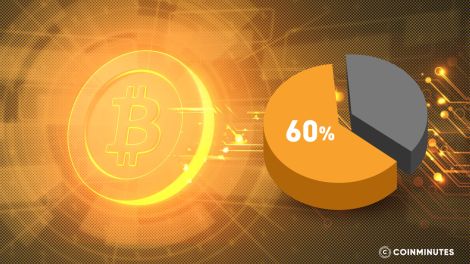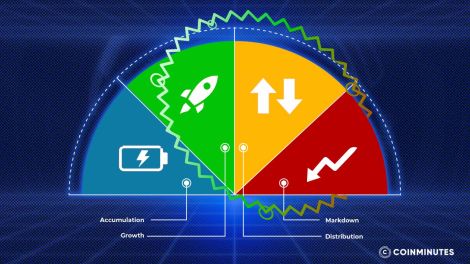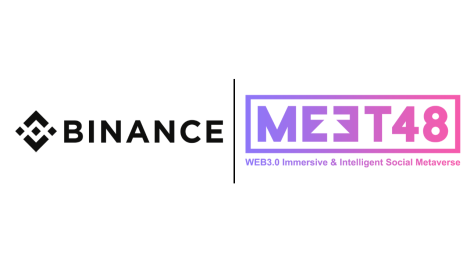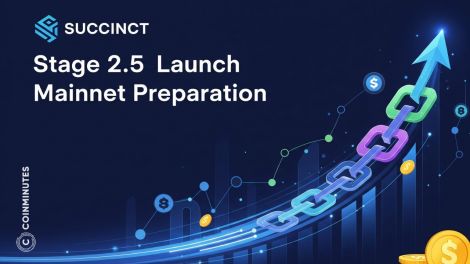Digital ID's Fatal Flaw: Ethereum Creator Warns of Problems Privacy Tech Can't Fix
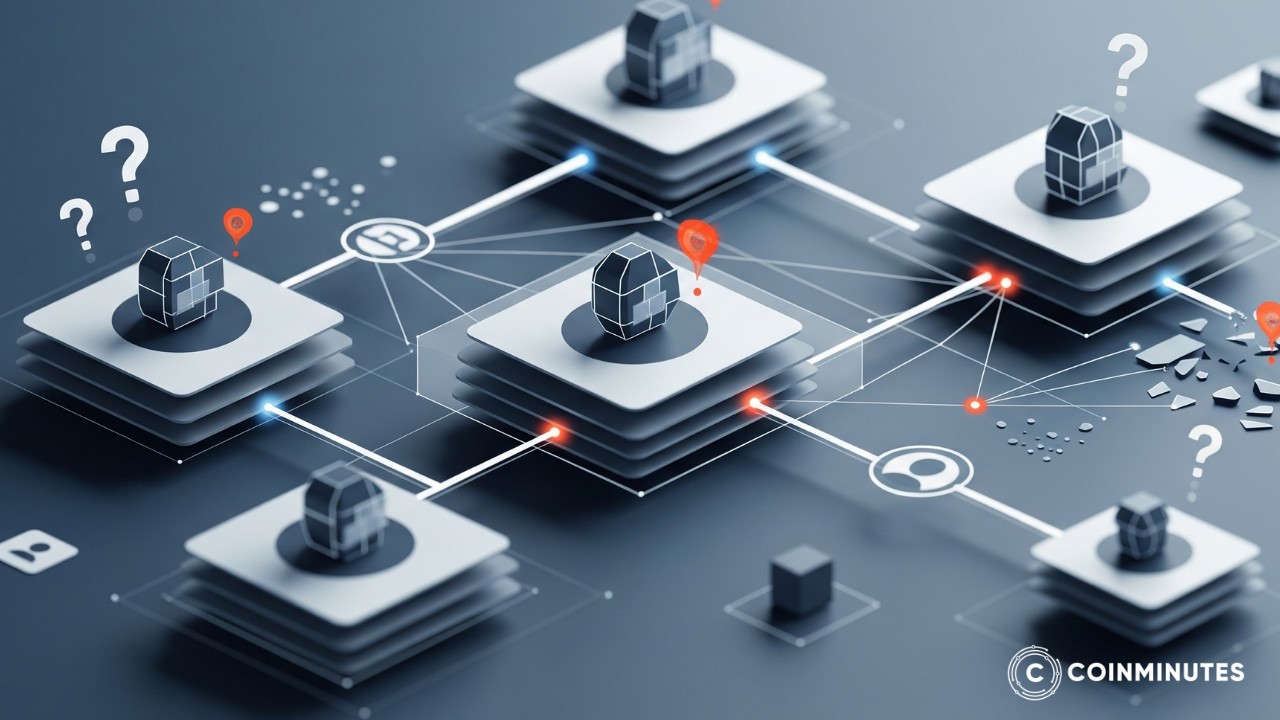
While "zero-knowledge proofs" - those clever cryptographic tricks that let you prove something without revealing excess information - offer some privacy benefits, Buterin argues they're merely bandages on a more serious wound.
The One-ID Trap
The heart of the problem? The "one-person-one-identity" model that underpins most digital ID systems.
This approach isn't just flawed - it's potentially dangerous. By creating a single point of failure, these systems risk compromising a person's entire digital existence if anything goes wrong. And things do go wrong.
Consider what happens when everything about you is linked to one digital identifier. Your financial transactions, social connections, political activities, health records - all connected and potentially exposed. Advanced encryption can't fix this fundamental design problem.
Buterin identifies three major vulnerabilities that even the fanciest cryptography can't solve:
They eliminate privacy by connecting all aspects of your life to a single identifier. Your coffee purchase becomes linked to your medical history, your library books to your voting record.
They enable coercion. When authorities can demand access to a universal ID, they essentially get keys to your entire digital kingdom.
Perhaps most troubling, they often exclude the vulnerable. Biometric systems fail for certain populations. Millions lack official documentation. The digital divide becomes an identity divide.
Worldcoin's Troubled Vision
Need a real-world example of these challenges? Look no further than Worldcoin.
The controversial project, which scans people's irises in exchange for cryptocurrency tokens, has spread to 35 countries but faces increasingly stiff headwinds. Spain didn't just regulate Worldcoin - they banned it outright. Hong Kong suspended operations. Kenya launched criminal investigations.
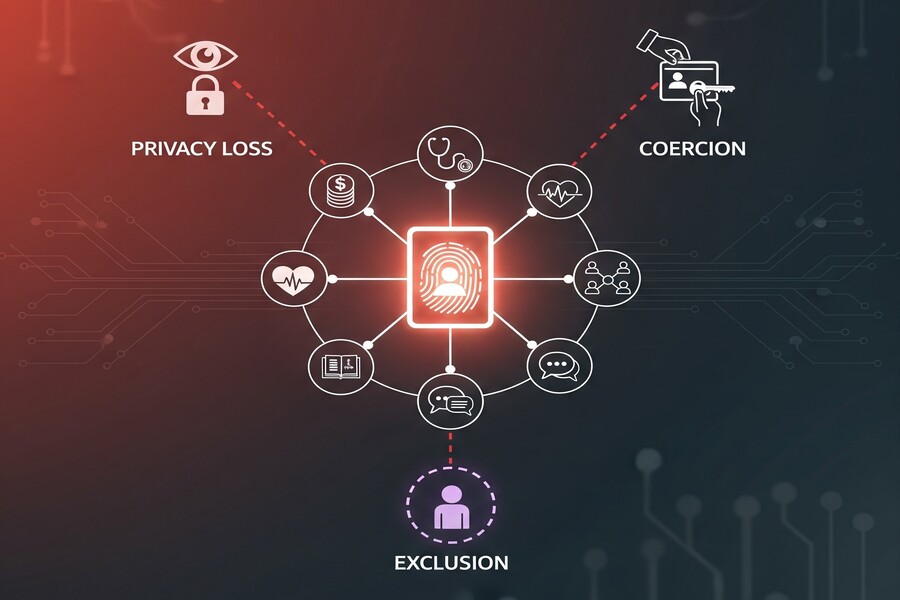
One ID, many risks: privacy, coercion, exclusion
Privacy advocates have been particularly scathing in their assessment. They argue the project essentially bribes economically vulnerable populations to surrender permanent biometric data - data that, once captured, can never be changed if compromised.
This raises uncomfortable questions about placing such sensitive information under corporate control, no matter how well-intentioned.
A Different Path: Many IDs Are Better Than One
So what's the alternative? Buterin doesn't just criticize - he offers solutions.
Instead of single-identity frameworks, he advocates for what he calls "pluralistic identity" systems. These use multiple, overlapping verification methods that better mirror how identity actually works in our day-to-day lives.
Think about it: you don't use your passport to pick up prescription medication or your driver's license to log into Netflix. Different contexts call for different forms of identification.
One promising approach involves social verification networks. The Circles universal basic income project exemplifies this method, creating trust networks where community members essentially vouch for each other. Another approach combines diverse verification methods - government IDs here, social media accounts there - ensuring no single system holds all the power.
Why Multiple IDs Make Sense
These alternative approaches aren't just academically interesting - they offer real advantages.
For one, they maintain separation between different parts of your life. Your professional identity doesn't need to connect to your dating profile or medical records.
They also provide crucial redundancy. If one verification method fails or is compromised, you're not locked out of your entire digital existence.
Most importantly, they resist coercion by eliminating those dangerous universal links between all aspects of your identity.
Different situations simply require different levels of verification. Buying age-restricted products needs one standard; accessing critical financial services requires another. A one-size-fits-all approach makes little sense in practice.
Getting There Won't Be Easy
Of course, transitioning to these more flexible systems faces real hurdles.
Social verification networks struggle with bootstrapping problems - how do you get started when communities aren't already connected? Multiple verification systems need technical standards and interoperability. The ethics remain thorny, as any identity system must balance preventing fraud while remaining accessible to everyone.
The regulatory landscape complicates matters further. The European Union, for instance, has shown a clear preference for government-controlled digital identities. This makes implementing alternative approaches challenging, even if they might ultimately better serve citizens.
But the tide may be turning. As backlash against centralized biometric systems grows louder, interest in more resilient alternatives could follow.
Your Digital Self: Why Context Changes Everything
Where are we headed with digital identity? Toward something more familiar than you might think.
In real life, you're different people in different contexts. You're one person at work, another with friends, and someone else entirely with family. Digital identity should work the same way.
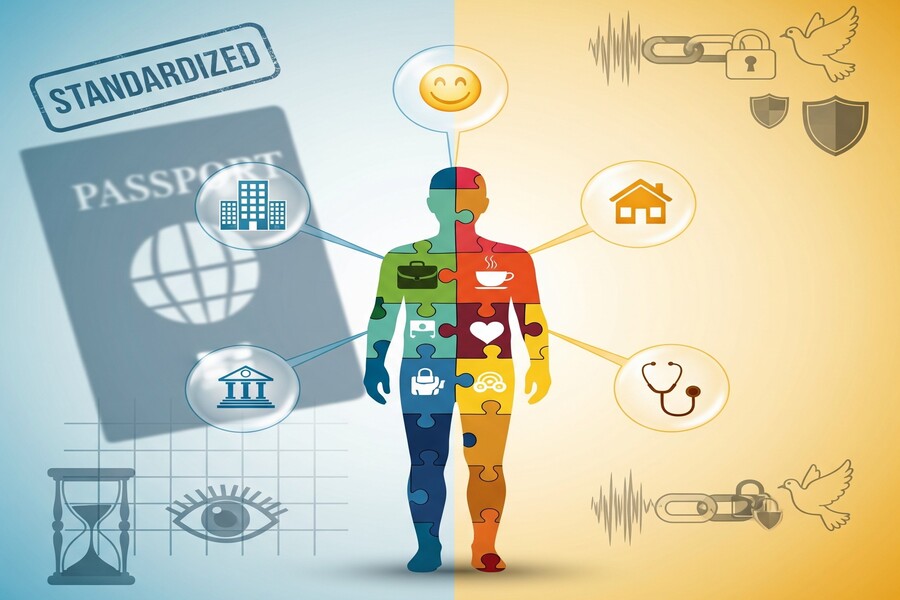
Control your identity, not a standardized passport
Think about it. Should the barista who checks your coffee loyalty card need the same verification as your bank? Of course not.
The future Buterin envisions ditches the "digital passport" model for something more nuanced. Social media might verify you're human without needing your government name. Financial services could require strong proof for major transactions but simpler verification for everyday purchases.
But can these systems actually work? The jury's still out.
Tech companies love standardization and governments crave control. Both tendencies push toward centralized systems despite their flaws.
What's at stake here goes far beyond convenience. It's about power.
When your digital self fragments across different systems, no single entity holds the complete picture. This distribution of power is precisely what early blockchain advocates championed - before the rush toward government-backed digital IDs.
The battle lines are being drawn. On one side: efficiency, standardization, and control. On the other: privacy, resilience, and freedom from surveillance.
Make no mistake: how we build digital identity systems today will shape our relationship with technology for decades. Build them wrong, and we're constructing the most comprehensive surveillance infrastructure in human history. Build them right, and we might just preserve what privacy and autonomy we have left.
The choice is still ours to make. But the window is closing fast.
 English
English
 Vietnamese
Vietnamese

